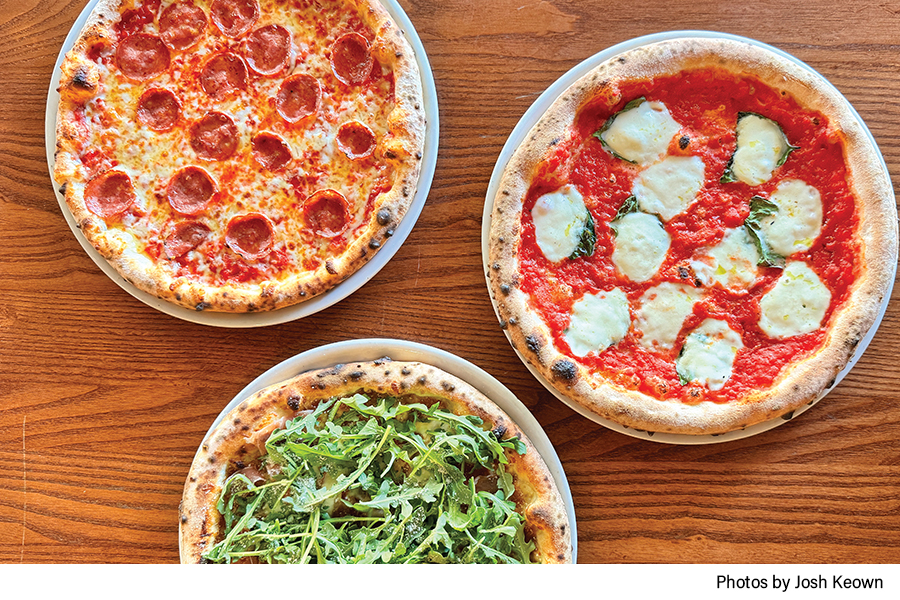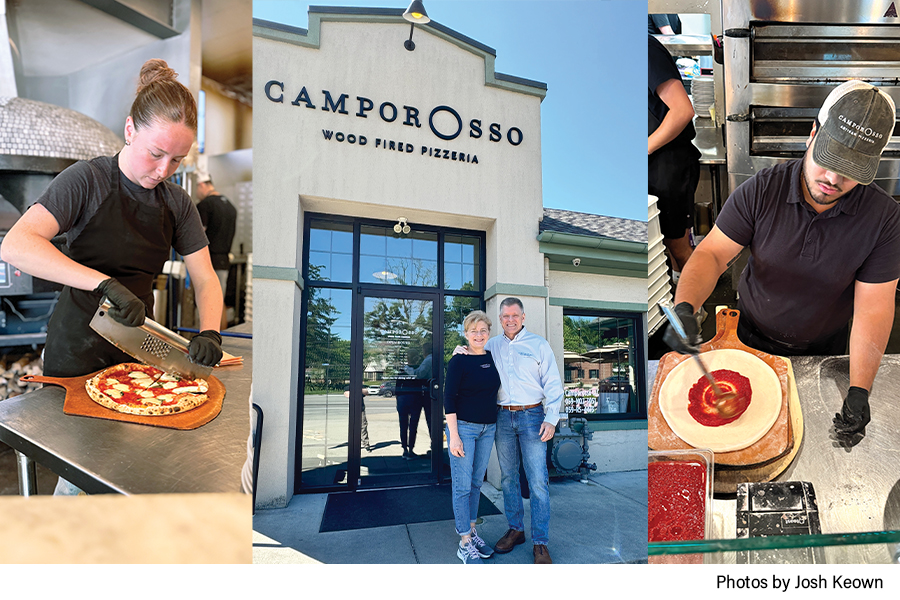Employee Retention Recipe for Success
In the ever-evolving landscape of the pizza industry, one crucial ingredient that should never be overlooked is retention.
Retaining employees is critical to ensuring that your busy kitchen and front-of-house operations work as efficiently and harmoniously as possible, and your customer satisfaction stays high. From creating a consistent dining experience for patrons to optimizing operational effectiveness and team dynamics, your pizza palace depends on retaining talented and dedicated staff.
“This industry has a constant churn of employees coming in and out of restaurants,” says Rebecca Hebert, business development representative at 7Shifts, a team management solution for restaurants. “When you find good ones, you want to do everything you can to keep them.”
We talked to some experts about why employee retention is not a mere garnish, but rather the main course of sustainable and thriving restaurants. We also share their tips on how to retain employees so your pizzeria can operate at the top of its game.
Save Money
The cost of recruiting, hiring and training new employees can be substantial in terms of time and resources. By retaining skilled and experienced staff, restaurants can save money they would otherwise spend on recruitment and training programs. Retaining employees means “you’re not posting jobs, you’re not spending money on labor to train people,” says Jack Hott, director of product management at Poached, a hiring platform for the hospitality industry. “Basically it’s a distraction. When someone leaves you need to do a whole lot of things that are outside the domain of what you need to do to run your business.”
Consistency in Service
Consistency in service is essential for building a positive reputation and retaining customers. Long-term employees are more familiar with the restaurant’s menu, policies and service standards. High turnover can lead to variations in service quality and negatively impact the overall customer experience. “Keeping your staff is good for consistency for the guests and the entire business, and it’s also good for morale for the entire staff,” observes Hebert.
Customer Relationships and Loyalty
Regular customers often form relationships with long-term staff, enhancing customer experience and loyalty. “The customers do notice,” notes Hott. “They see familiar faces. That’s part of creating a good regular clientele.”
Productivity and Efficiency
Experienced employees get more efficient as they learn your restaurant’s processes and systems. High turnover leads to poor efficiency as new employees get up to speed. Retention “reduces stress on the manager,” says Hebert. “It takes a lot of time and a lot of energy to hunt for someone new. That manager could instead be focusing that energy on their current staff – working on training and career development and just overall support.”
Knowledge Transfer
Experienced employees acquire valuable knowledge about the restaurant’s operations, customer preferences and industry trends. When employees stay with the restaurant, this knowledge is retained within the organization, contributing to its institutional memory.
For example, “when you have a long-term employee, you can move them around between roles as necessary,” says Hott. “Say you need somebody to fill a hosting shift who’s normally a server. They can do it because they’ve seen it happen in practice so often. Same with the back of the house – you might need a line cook to serve as a prep cook. They can step into that role because they’ve seen it happen through experience, but maybe not through direct training.”
Team Culture and Cohesion
A stable, long-term team is likely to develop strong bonds and effective communication, vital in a fast-paced and collaborative environment like a pizzeria. High turnover disrupts team dynamics, making it challenging to maintain a positive and efficient work atmosphere.
“Retention can be really important to a company’s culture,” reflects Hott. “Your long-term employees are training the new ones on culture and how to succeed in that workspace. These are both material things and behavioral things. Psychologically, people tend to mirror those who are around them. When you have strong long-term employees that behave a certain way, new employees will respond to that. When you have a lot of churn, you lose that culture. It’s harder to teach the cultural parts of the job when everyone’s so new that no one really knows what the culture is supposed to be. It can create some chaos in terms of how employees interact with one another. If you have an unpredictable workplace, you’re
going to have turnover.”
Employee Morale
High turnover can negatively impact the morale of the remaining staff. Constantly seeing colleagues leave leads to a sense of instability and lower morale among those who stay. “One price you can pay is that when somebody leaves, it may influence other staff who weren’t thinking about leaving. It often creates a moment where people feel like maybe this is the time to go,” says Hott.
HOW TO RETAIN EMPLOYEES
Pay Well
“People like to work for us because we pay well,” says Chuck Hammers, president of Pizza My Heart, with about 500 employees at 27 California locations. “We don’t have much turnover. Over 25 percent of all our employees have been with us over five years, and most of our managers have been here 10 to 30 years.” He notes that POS technology that invites people to add a tip “is truly a game changer for us. Our employees are seeing an extra five dollars an hour in tips on average, and that just keeps the employee there.”
Respect Your Staff
Hebert emphasizes that “this industry is notorious for overworking staff. It’s been glorified, but it burns people out, it makes them miserable. Ultimately they leave or do a bad job. People have lives outside of work and managers need to respect that. They need to be protected and supported by management.” In addition to offering career growth opportunities and ongoing training, support your employees when they face challenges with their families, medical issues, mental health issues or financial issues.
Train Well
“Have a solid training foundation,” advises Hebert. “Not just training for the steps of service and learning the menu, but about how the entire culture of the company works, because that culture is really what is going to keep people there, especially if it’s a good fit. So nurture them and put in the effort to train. Focus on productivity and well-being over just labor dollars, and you’ll keep staff.”
Cultivate Your Culture
Hott says “we find that businesses with strong positive cultures have retention, and they have an easier time hiring because they can use the network of those long-term employees. That business will also have a reputation within the community that will attract more long-term employees.” He observes that inconsistency from management causes a lot of turnover. “If you’re constantly changing expectations, constantly changing how tasks are structured, it creates a distraction for the worker. Most people want to be where things are predictable. Be very clear with what you want out of an employee. If you’re able to create predictability in your workplace, you’re going to have retention.”
Annelise Kelly is a Portland, Oregon-based freelance writer.








